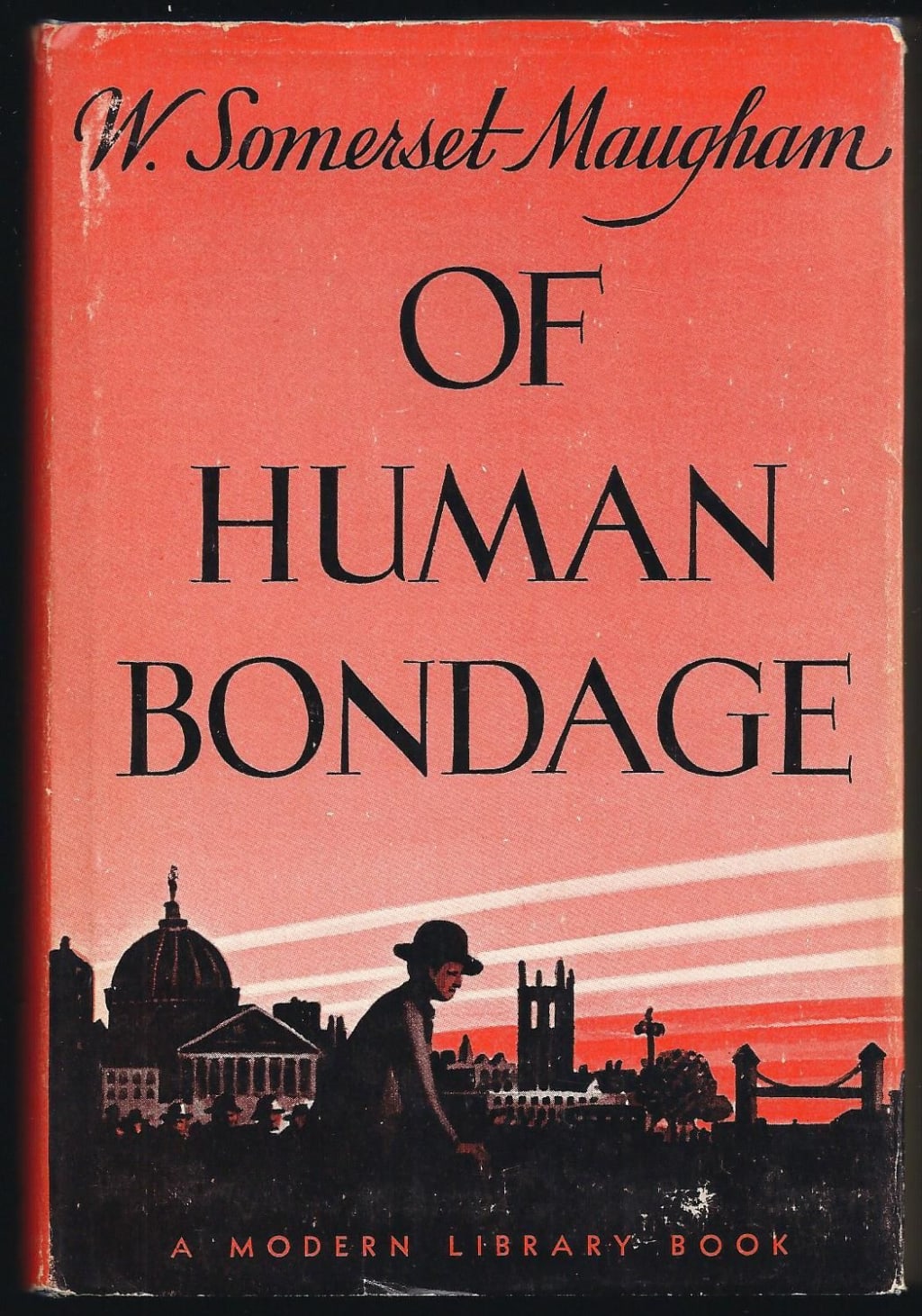From Self-Pity to Self-Acceptance: The Transformative Journey in 'Of Human Bondage
"Of Human Bondage" by W. Somerset Maugham focuses on three main "chains" or obstacles that people need to overcome in life to achieve true freedom and happiness: Self-pity due to perceived imperfections: The main character Philip struggles with a physical disability (a clubfoot) that causes him to feel inferior and self-pitying. The lesson is to accept one's imperfections and focus on personal strengths rather than comparing oneself to others. Wrong persistence in career choices: Philip initially pursues painting but realizes he lacks the necessary passion and talent. The importance of self-reflection to find one's true calling is emphasized, as Philip eventually finds fulfillment as a doctor. Attachment to unhealthy relationships: Philip's obsessive love for Mildred, who doesn't reciprocate his feelings, is portrayed as a form of bondage. The text emphasizes the need to let go of toxic relationships and find balanced, mutual love. The overall message is that by releasing these "chains" - self-pity, wrong persistence, and unhealthy attachments - one can achieve personal freedom, self-acceptance, and true happiness. The document encourages readers to apply these lessons to their own lives and make positive changes.

"Of Human Bondage" is a powerful and introspective novel that delves deep into the human condition, exploring the invisible chains that often hold us back from achieving true freedom and happiness.
Through the life of Philip Carey, Maugham masterfully illustrates three key struggles that many readers will find relatable: self-pity stemming from perceived imperfections, misguided persistence in unsuitable pursuits, and attachment to toxic relationships.
Maugham's narrative is both compassionate and unflinching as it follows Philip's journey from a self-conscious, clubfooted orphan to a man who ultimately finds self-acceptance and fulfillment. The author's keen psychological insights shine throughout the novel, particularly in his portrayal of Philip's internal battles and gradual growth.
One of the book's greatest strengths lies in its nuanced exploration of self-pity and the paralyzing effect it can have on personal development. Maugham deftly illustrates how focusing on one's flaws can become a self-imposed prison, while acceptance of imperfections can lead to liberation.
The novel also offers valuable lessons about career and passion, challenging readers to reflect on the difference between perseverance and stubborn persistence in the wrong direction. Philip's journey from aspiring painter to fulfilled doctor serves as a poignant reminder of the importance of self-awareness in finding one's true calling.
Perhaps most memorable is Maugham's portrayal of Philip's ill-fated infatuation with Mildred. This subplot serves as a cautionary tale about the dangers of clinging to unhealthy relationships, while also highlighting the transformative power of letting go.
While the pacing can be slow at times, reflecting the deliberate nature of Philip's personal growth, the rich character development and profound themes more than compensate. Maugham's prose is elegant and accessible, making complex philosophical ideas digestible for a wide audience.
"Of Human Bondage" is more than just a coming-of-age story; it's a timeless exploration of the human spirit's capacity for growth and self-liberation. Its enduring relevance and universal themes make it a must-read for anyone grappling with their own personal "chains" or seeking a deeper understanding of the human experience.
This novel challenges readers to examine their own lives, encouraging them to break free from self-imposed limitations and pursue authentic happiness. It's a testament to Maugham's skill as a writer that almost a century after its publication, "Of Human Bondage" continues to offer valuable insights into the complexities of human nature and the path to personal freedom.
W. Somerset Maugham's "Of Human Bondage" stands as a timeless exploration of the human struggle for self-liberation. Through Philip Carey's journey, the novel illuminates three fundamental challenges we all face: overcoming self-pity, finding our true calling, and freeing ourselves from toxic relationships.
Maugham's work reminds us that true freedom comes from within. By accepting our imperfections, pursuing genuine passions, and valuing ourselves in relationships, we can break the invisible chains that hold us back. The novel's enduring relevance lies in its profound understanding of human nature and its compassionate portrayal of personal growth.
"Of Human Bondage" is more than just a literary masterpiece; it's a guide for self-reflection and personal development. It challenges readers to examine their own lives, identify their self-imposed limitations, and find the courage to break free. In doing so, Maugham offers a path not just to self-acceptance, but to a richer, more authentic life.
As we navigate our own struggles and seek our place in the world, the lessons from this novel serve as a beacon, reminding us that the power to change our lives ultimately resides within ourselves. By confronting our fears, letting go of what doesn't serve us, and embracing our true selves, we too can embark on a journey towards genuine freedom and fulfillment.
Thanks all for spending time reading my story. Wish all the best happened to my readers
About the Creator
Enjoyed the story? Support the Creator.
Subscribe for free to receive all their stories in your feed. You could also pledge your support or give them a one-off tip, letting them know you appreciate their work.





Comments
Hải Đăng is not accepting comments at the moment
Want to show your support? Send them a one-off tip.